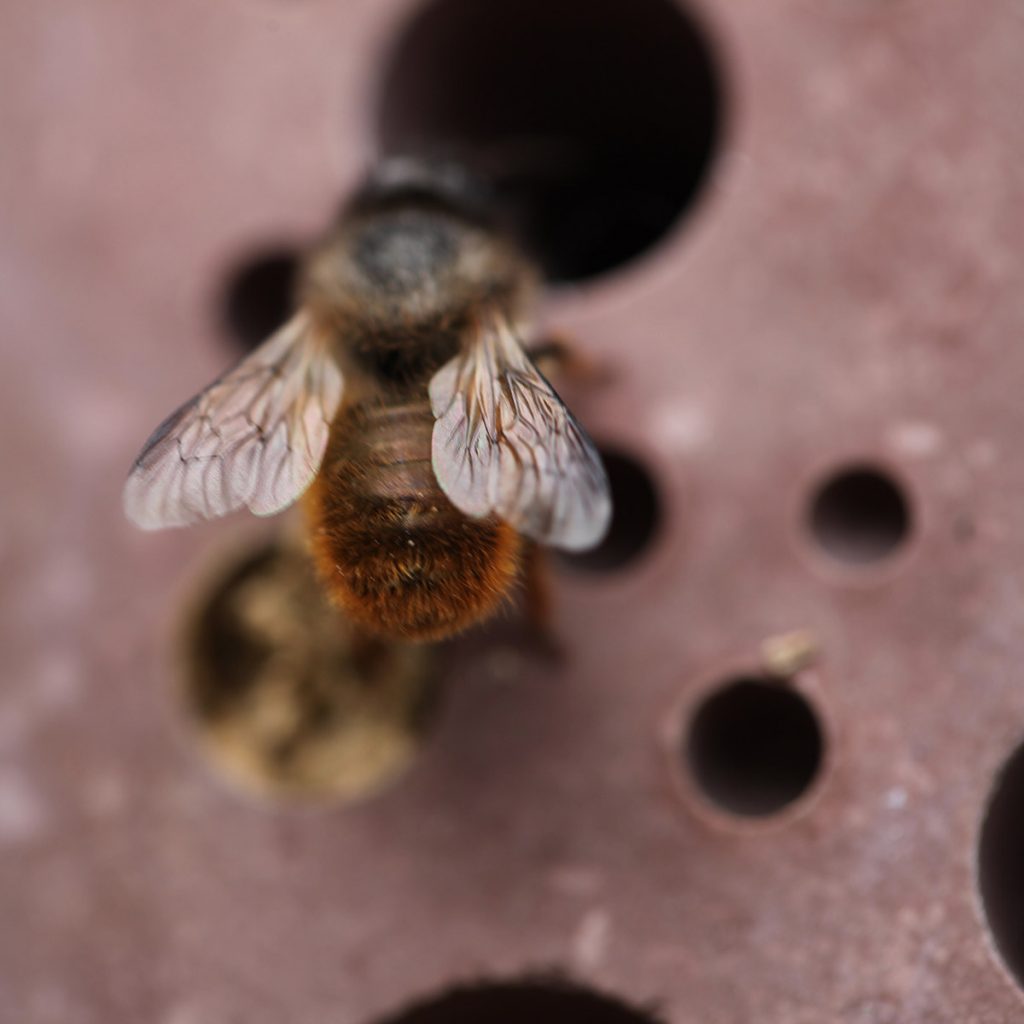Bees play an essential role in the eco-system. Without pollinators in the garden, there would be no flowers, fruit, vegetables, or vegetation. Unfortunately, many species of bees are on the decline around the world. There are several theories about why bees are dying. Scientists and researchers theorize that the decline is caused by stress, disease, the use of pesticides, and parasites. If you have a garden, then it is vital that you work to attract bees, so they can pollinate your plant life, find shelter, and ample food to rejuvenate.
How to Attract Bees to Your Garden
Here are just a few ideas to attract bees to your garden:
1. Bee Friendly Plants:
Bees require plant nectar to survive. The sugary substance that is secreted by flowers is rich in proteins and fats. Bees use it as a food source to provide energy and nourishment. Ideally, you should plant a variety of flowers, trees, and shrubs to attract the bees. The various plants should bloom at various times of the year, so you are always offering a non-stop supply of nectar. Plant crocus and hyacinths in the springtime. You can also choose flowering trees for the spring months such as cherry or apple trees. In the summer, zinnias, daisies, black-eyed Susan, and poppies are ideal for creating a profusion of blooms. In the autumn, asters, mums, and sunflowers also offer bees a nectar-laden energy boost before the winter months. Native wildflowers and plants are a low-maintenance choice.
2. Choose the correct location to plant trees:
Bees love to carry pollen from tree to tree but in windy or high altitude conditions (usually over 600ft) this can become difficult. This pollination checker tool for fruit trees that can help you choose the ideal trees that bees can pollinate.
3. Pick Garden Colours:
Bees are naturally attracted to vibrant colours. Flowers that create blue, yellow violet, white, and purple blooms are especially popular with bees. When planting a bee-friendly garden, always place the flowers in clumps so the bees can easily spot them. Remember, there are many species of bees, and all have different tongues so try to plant a variety of different flowers. However, single flowers usually offer the easiest access to the nectar versus double blossoms.
4. Water:
People often do not realize that bees require water daily. An attractive pond or birdbath become a valued addition in any landscape. Also, bees will sip drinks of water from your sprinklers.
5. Bee House:
Bees like to seek shelter in a variety of places such as dead trees, hedgerows, underground nests, tree branches, and empty animal burrows. Many solitary bees will use a bee house like a Bee Brick, or you could create a makeshift one as a fun DIY project.
6. Avoid Pesticides:
Pesticides are deadly to bees. Not only that, but a study by Proceedings of the Royal Society B found that the more pesticides a bee eats the more they like them. Yes, the chemicals are great at killing off pests, but bees are also poisoned and potentially addicted to these substances. Choose only to use natural pesticide. Releasing ladybugs into the garden is an effective way to control aphids and other pests. Many garden retailers sell ladybugs for your garden. The following pesticides have been shown to be especially harmful to bees:- Imidacloprid
- Thiamethoxam
- Acetamiprid
- Dinotefuran
- Clothianidin
7. Do Not Kill Bees:
Do not kill bees might seem like a simple concept, but sometimes children or other adults will kill bees out of fear or frustration. If you are allergic to bees, then try to avoid them. Most bees will not bother you. The bees want to go about their business of gathering pollen and dining on nectar.
8. Backyard Beekeeping:
Maintaining a backyard beehive has never been easier. Now you can purchase kits that are easy to maintain. You do not even have to live in a rural area to become a beekeeper. Also, beekeeping can provide you with delicious honey and honeycomb.
The above methods are effective ways to attract bees to your garden. Creating a bee-friendly garden is not only beneficial for the bees but also a wonderful way to help the environment and support sustainable gardening practices.
Bio: Julien de Bosdari is the owner of Ashridge Trees , a mail order plant nursery.They specialise in hedging, trees, fruit, roses and shrubs.



